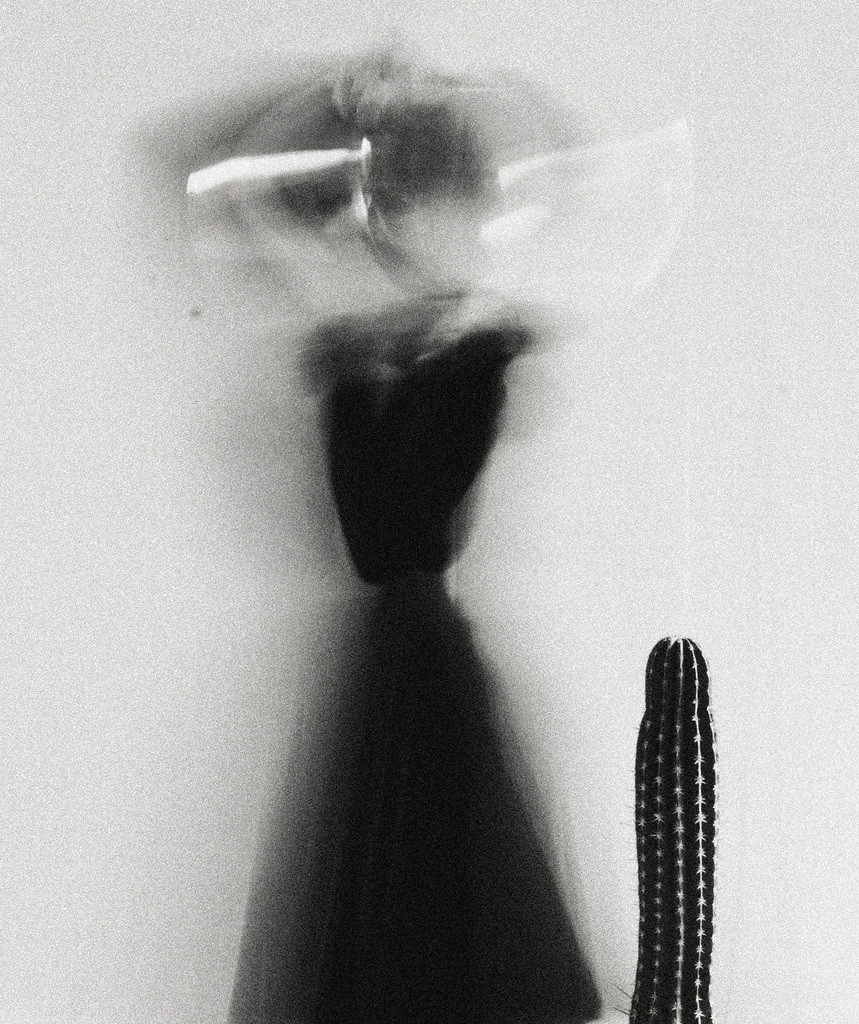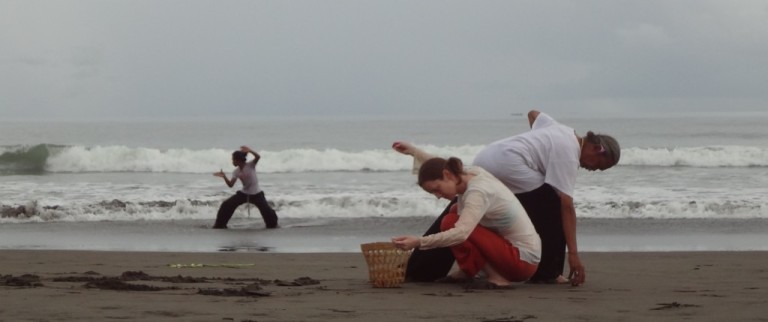Laressa Dickey
Moment is within momentous
- Interruption
- Misunderstanding
- Migration
- No Father, No Mother
- Tuning
- Moment is within momentous
- Repeat, Please
- Kinesthesia
- _I Imagine How, Like This_

Interruption

(Image credit: Laressa Dickey)
Two matchboxes, one for new and one for old ones, heads burnt. Yesterday, the bed of the homeless person under the bridge at Behmstrasse was found burned to ash, and all that was left the sequence of springs as they had lain inside the small mattress, one after another, giving support. On Christmas, before this space had burnt, small gifts had been left, an orange, two wrapped packages, with bows and ribbons. Other times I passed, the bed was made, blankets neatly put away. A few books leaning against the wall the person slept against. Birds on side streets.
Misunderstanding

(Image credit: Laressa Dickey)
The shadow and the actual, what's the difference? A sea beyond this, in the direction of those reflected trees, dadurch. A Swedish sky that had been grey for an inordinate amount of days; we could barely recognize the birches in that light. I had been restless, had been tearing out of the house. A feeling that shuffling the deck over and over didn't result in any new random-ness; in fact, it might have only served to further pronounce the patterns I had developed, without knowing.
Migration

(Image credit: Laressa Dickey)
There's space here for Eros, there's space for old notebooks left by the dead. You look worn out. Being able to see the mountain as we travel, they will come to the country you were born in, and say, your eye is the proof of suspension, of this dimension. They may say to us, the nest has been destroyed, or the hunter escapes.
No Father, No Mother

(Image credit: Moshe Gershuni, | No Father No Mother, 1998 | © Moshe Gershuni, courtesy Givon Art Gallery Tel Aviv)
went away with the light
casts of herons
caught in the hood of a
slight moon
and looking like language
looking like the book any of us
could have read
or are reading again
Tuning

(Image credit: Laressa Dickey)
The nerves of the branch holding the shadow of geese all going away
My steel cities broadening
They may say chasms
They may say fools please
I occupied the chair he once did
In comes the dawn chorus of birds
The sequence with which each joins, by light
a cue from the sun—
They may say squall warnings
They may say in twilight, they may say we pretended
My meter telling me how early, how the horizon wakes up
Again voices like waves
We could listen as a daily ceremony
They may say intersection or transit
There is enough time then to obfuscate beauty!
Cue the proclamations! The unborn sites!
Take the train from _____ to T______
Get out, walk with tickets in your hand
Take the 8th left, take the chasm
https://player.vimeo.com/video/11097994
Narrative details but unexpected narrative. Details but unexpected places. Non-narrative, anti-hero, flailing, missing, falling, failing. Body not fitting. Slipping off. Body talking to you off-stage, you really must see the underside of the chin. Body details out of place, body freeing itself, body saying, this here’s the funny part. Narrative and timing and waiting and o yes moon river. And delight in action. And performativity. And the absurdity of separation, body off talking to you, body off taking in light, taking pleasure in everything well-timed.
Moment is within momentous

(Image credit: Unknown)
Before the witch dance, there is this moment. The proximity of sitting to jumping. On or over the horizon. Her hands, a fist, an umbrella; the effortlessness shocks every time I look. Here the ease of being what one is, the only form being the one emerging in this instant. This is her work, friends. Lifting, falling, suspending, rising, spiraling, flying, taking off, landing--we don't know yet, how this all resolves.
Repeat, Please
https://www.youtube.com/embed/rqrXLmLN3yw
(Credit: Keiichi Tanaamui, Crayon Angel,1975)
These are masks they circulate: Death, I surrender. Fire having leveled the city. Chickens on my ears, moaning. The sun comes up an orange. I send photographs to strangers I find in deserted streets. There is nothing cold about this let me assure you. The planes came and their black smoke it was not language we understood as a love/distress signal. I encourage you to bring your angels to this one, even Icarus-wings may help. In mustache. Count the four planes. Count the woman’s nipples feeding your dead child; count the running, hands up, you so enjoy.
“I was rushed away from my childhood, a time that should be filled with eating and playing, by the enigmatic monstrosity of war; my dreams were a vortex of fear and anxiety, anger and resignation. On the night of the air raid, I remember watching swarms of people flee from bald mountaintops. But then something occurs to me: was that moment real? Dream and reality are all mixed up in my memories, recorded permanently in this ambiguous way.”
-- Keiichi Tanaamui (quoted from Wikipedia)
Kinesthesia

(Image credit: Narcissus, Gyula Benczúr, 1881, Hungarian National Gallery)
Narcissus the only one moving in that room.
Four rooms, and the hero walking over them all day.
A huge slab of century.
All archipelago with no bridges.
The hero in old age, tossing coins in dry fountains, which are diverted, covered in plastic, yet still charging tourists to enter.
Toes and their tissues keeping everyone away from sinister heels that don't hit the ground.
What rot.
The city passes me. Cobblestones keyed in place, a poverty of old age, more ornate than either of us expected at the time, we used to say. Who laid all this marble near the glass?
I slept on the floor from sickness.
It was like lying on the dead body of Death.
_I Imagine How, Like This_

(Image credit: Yui Nakagami)
Pak Prapto said later, after the rain, the flower too has the quality of telling. Not by effort or trying, but by its own development, just being its flower-self. If you give it attention, it's ok, and if not, it's ok, but I am like this, flowering.
Laressa Dickey
Laressa Dickey is the author of Bottomland (Shearsman), Apparatus for Manufacturing Sunset (dancing girl press), as well as four chapbooks from MIEL Books, including A Piece of Information About His Invisibility. Her work has appeared in American Letters & Commentary, Aufgabe, Newfound, inter|rupture, and other journals. She lives in Berlin.